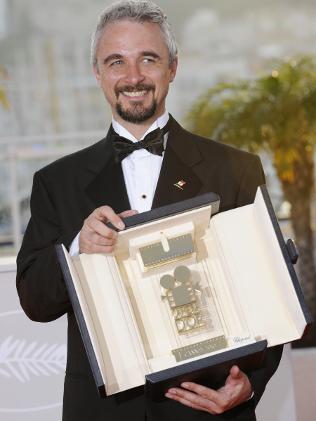Exclusive: Camera d'Or winner Michael Rowe
 In this exclusive interview, Camera d’Or-winning Australian expat director Michael Rowe talks about his career in Mexico, and how the lack of a treaty or MoU with that country might make production of his next project more difficult.
In this exclusive interview, Camera d’Or-winning Australian expat director Michael Rowe talks about his career in Mexico, and how the lack of a treaty or MoU with that country might make production of his next project more difficult.
“It would seem logical [for Screen Australia] to take advantage of this level of international exposure. I spoke to them on the very first day in Cannes, and that was before the award, so maybe now it’s a different story. I have to talk to them again,” Rowe told Encore.
His new script is a story about an Australian expat living in Mexico City.
“[Head of development] Martha Coleman was very enthusiastic about the whole thing. [Head of production investment] Ross Matthews was a little less enthusiastic because he has to deal with the harsh realities of legal agreements.


Mil felicidades a Micahel Rowe. Al menos ya tienes a uno en tu audiencia (yo).
Que buena onda que viniste a México, que estudiaste aqui, y que de aqui salio ese filme.
Por ahí leí que tienes doble nacionalidad. Y yá tienes una parte mexicana en tu vida.
Que gran influencia para el cine mexicano adquirió y seguro saldrán grandes cosas, desde tu propia óptica.
En horabuena.
Rubén Ibarra.
Note from the editor:
This is the translation for the previous entry from one of our international readers:’
Congratulations to Michael Rowe. You already have at least one member in your audience (me).
It’s great that you came to Mexico, that you studied here and that this film came from that.
I read that you have both nationalities and that you have a Mexican part in your life.
Mexican cinema has gained a great talent and surely, great things will come from it, told from your own vision.
congratulations
Ruben Ibarra.
Michael won the Camera d’Or (recognising a first film), not the Palme d’Or (jury’s choice of overall Competition winner) – very different things, but congrats are certainly in order.
I sat in the audience, as I do every year, and watched the awards at Cannes last Sunday night.. The extraordinary moment for me was when this charming young man with an unmistakable Australian accent got up to accept the Camera d’Or for his Mexican film Ario Bisiesto. Oz Distributor Mark Spratt, with whom I was sitting,and I, had neither heard of him, or seen his picture. Notwithstanding this, as someone who has often worked outside the ‘system’ around the world in the forty two years I have been a producer, I need, and must say, all power to his arm. I wish I had seen his picture, and met him, while at Cannes.
Sure this ain’t well known homophobic Jason Akermanis moonlighting?
Doubtful, unless Jason Akermanis can speak Spanish with a Mexican accent and a very ‘colourful’ vocabulary!
Congratulations Michael – interesting interview but that is only the tip of the iceberg.
Hopefully someone in the Australian Film Industry may look to help produce your next movie which you of course hope will be done between the to countries. More importantly – Good on you for sticking to your guns and THINKING BEYOND THE SQUARE. irrespective . May many doors open for you and in case any one says we only accept solicted scripts may you remeber your day well and for what it is worth I believe Lord Of The Flies was rejected 27 times before it was published. .
Cheers brissy